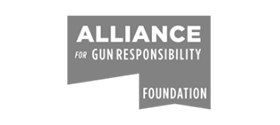Vermont Law
VERMONT DOMESTIC VIOLENCE FIREARM PROHIBITIONS
Vermont Domestic Violence Firearm Purchase and Possession Prohibitions
Vermont prohibits persons convicted of a violent crime from possessing a firearm.1
The definition of “violent crime” includes, but is not limited to, the following:
- Stalking;
- Domestic assault;
- A violation of a final abuse prevention order*; and
- Attempts to commit any of the offenses listed above.2
Vermont law does not prohibit persons subject to an abuse prevention order from purchasing or possessing firearms; however, a court issuing an abuse prevention order “shall make such orders as it deems necessary to protect the plaintiff or the children, or both, if the court finds that the defendant has abused the plaintiff, and:
- There is a danger of further abuse; or
- The defendant is currently incarcerated and has been convicted of one of the following: murder, attempted murder, kidnapping, domestic assault, aggravated domestic assault, sexual assault, aggravated sexual assault, stalking, aggravated stalking, lewd or lascivious conduct with a child, use of a child in a sexual performance, or consenting to a sexual performance.”3
The Supreme Court of Vermont has held that “the general authorization for the court to make orders it deems necessary to protect plaintiff, and her child, was sufficiently broad to allow the court to prohibit the defendant from possessing firearms.”4
VERMONT CIVIL ABUSE PREVENTION ORDER FIREARM REMOVAL
Vermont Abuse Prevention Orders that Require Removal
Vermont does not require the subject of an abuse prevention order to surrender their firearms; however, Vermont law provides “[a] person who is required to relinquish firearms, ammunition, or other weapons in the person’s possession by [an abuse prevention order] or any other provision of law consistent with 18 U.S.C. § 922(g)(8)* shall… upon service of the order immediately relinquish the firearms, ammunition or other weapons[.]”5
Individuals Who can File a Complaint for an Abuse Prevention Order
Any family or household member may seek relief from abuse by filing a complaint for an abuse prevention order on behalf of theirself, or on behalf of their children.6
The Supreme Court of Vermont defines “family” as “‘[a] group consisting of parents and their children’ or ‘[a] group of persons connected by blood, by affinity, or by law.’”7
“Household member” is defined as “persons who, for any period of time, are living or have lived together, are sharing or have shared occupancy of a dwelling, are engaged in or have engaged in a sexual relationship, or minors or adults who are dating* or who have dated.”8
Removal Process
A respondent required to relinquish firearms, ammunition, or other weapons pursuant to an abuse prevention order may relinquish to a cooperating law enforcement agency, an approved federally licensed firearms dealer, or a third party – unless the court finds that relinquishment to the third party will not adequately protect the safety of the victim.9
A third party to whom firearm, ammunition, or other weapons are relinquished shall execute an affidavit stating that the third party:
- acknowledges receipt of the firearms, ammunition, or other weapons;
- assumes responsibility for storage of the firearms, ammunition, or other weapons until further order of the court, and specifies the manner in which they will provide secure storage of such items;
- is not prohibited from owning or possessing firearms under State or Federal law; and
- understands the obligations and requirements of the court order, including the potential for the third party to be subject to civil contempt proceedings if they permit the firearms, ammunition, or other weapons to be possessed, accessed, or used by the respondent or by any other person not authorized by law to do so.10
Storage and Fees for Storage
A law enforcement agency or an approved federally licensed firearms dealer that takes possession of a relinquished firearm, ammunition, or other weapon is required to “photograph, catalogue, and store the item in accordance with standards and guidelines established by the Department of Public Safety.”11
Vermont law provides law enforcement agencies immunity “from civil or criminal liability for any damage or deterioration of firearms, ammunition, or weapons stored or transported pursuant to” law, so long as the damage or deterioration did not occur as a result of recklessness, gross negligence, or intentional misconduct by the law enforcement agency.12
A law enforcement agency that stores relinquished firearms, ammunition, or other weapons may charge the respondent a reasonable storage fee, not to exceed:
- $200 for the first firearm or weapon, and $50 for each additional firearm or weapon for up to 15 months, prorated on the number of months the items are stored; and
- $50 per firearm or weapon per year for each year or part thereof thereafter.13
A federally licensed firearms dealer that stores relinquished firearms, ammunition, or other weapons may charge the owner a storage fee that is “reasonably related to the expenses it incurs” to store the relinquished firearms, ammunition, or other weapons.14
Return of Firearms to Respondent
A law enforcement agency, an approved federally licensed firearms dealer, or a third party that stores firearms, ammunition, or other weapons surrendered pursuant to an abuse prevention order shall not return the items to the respondent without a court order.15 A respondent may make a motion to the court to order the release of surrendered firearms, ammunition, or other weapons.
If the court orders the release of firearms, ammunition, or other weapons, the law enforcement agency or approved federally licensed firearms dealer “shall make them available to the owner within three business days of receipt of the order and in a manner consistent with federal law.”16
If the respondent does not retrieve the firearms, ammunition, or other weapons and does not pay the applicable storage fee within 90 days of the court ordering their release, the firearms, ammunition, or other weapons may be sold for fair market value.17 The law enforcement agency or approved firearms dealer shall make a reasonable effort to notify the respondent of the sale before it occurs.18
Penalties for Violation
Violation of an abuse prevention order is a crime subject to imprisonment of not more than one year, a fine of not more than $5,000, or both, and may also be prosecuted as criminal contempt punishable by a fine of up to $1,000 or imprisonment for six months or both.19



